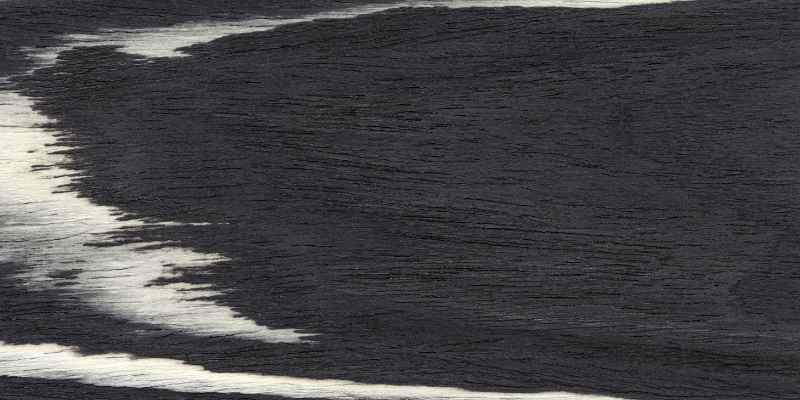Ebony wood does not float; it sinks due to its density and weight. This hardwood is heavy and dense, causing it to sink in water.
Ebony wood, known for its rich texture and high density, has a unique property of sinking in water due to its density. Often associated with luxury and high-end craftsmanship, ebony’s distinct features make it a sought-after material in the woodworking industry.
Its dark, lustrous appearance and durability have made it a favorite for creating high-quality furniture, musical instruments, and decorative items. Despite its expensive price tag and challenging processing requirements, ebony remains a top choice for artisans and craftsmen looking to create exquisite pieces that stand the test of time.
Properties Of Ebony Wood
Ebony is a dense black/brown hardwood, originating from species in the genus Diospyros, including macassar and mun ebony, which have enough density to sink in water. Let’s explore the distinctive properties of ebony wood:
Density
- Ebony wood is heavy and dense, making it sink in water.
- Its high density contributes to its durability and stability.
- The density of ebony wood varies depending on the specific species.
Appearance
- Ebony wood is finely textured and features a mirror-like finish when polished.
- It boasts a rich black/brown color that adds sophistication to any project.
- The dark hue of ebony wood is highly sought after for its ornamental value.
Value
- Ebony is considered one of the most expensive woods due to its rarity and unique properties.
- Its density and dark color contribute to its high market value.
- Despite being costly, ebony wood is prized for its aesthetic and functional qualities in woodworking.
Buoyancy Of Ebony Wood
When it comes to the buoyancy of wood, it is commonly believed that all wood floats on water. However, this is not the case for ebony wood. Ebony is a dense black/brown hardwood that sinks in water. Let’s explore the buoyancy of ebony wood in more detail.
Common Beliefs
There is a widespread belief that all wood floats on water due to its natural cellular structure. This belief is supported by the fact that most wood species have a lower density than water, allowing them to float effortlessly. However, ebony wood shatters this belief with its unique properties.
Scientific Explanation
Ebony wood, which originates from several species in the Diospyros genus, is heavy, dense, and sinks to the bottom when placed in water. This is due to its high density, which is greater than that of water. The high density of ebony wood is caused by the tightly packed cells and the abundant presence of resins and oils.
In summary:
- Ebony wood is a dense black/brown hardwood that sinks in water.
- Its high density is caused by tightly packed cells, resins, and oils.
- Due to its unique properties, ebony wood is an exception to the common belief that all wood floats on water.
It is important to note that ebony wood’s density and sinking nature contribute to its value as an ornamental wood. The fine texture and mirror finish when polished make it highly sought after in various applications, including high-end furniture and musical instruments.
Finally, let’s list some key points:
- Most wood species float on water due to their lower density.
- Ebony wood is an exception, as it is dense enough to sink in water.
- Ebony wood is valuable for its ornamental qualities and is often considered one of the most expensive woods.
Comparison To Other Woods
Ebony wood is known for its exceptional density compared to other woods. This density contributes to its unique characteristics.
When it comes to buoyancy in water, ebony wood stands out due to its higher density, causing it to sink rather than float.
Uses Of Ebony Wood
Ebony wood, known for its dense and dark characteristics, has been highly valued for centuries due to its various uses. This hardwood, which sinks in water, offers a range of historical and contemporary applications.
Historical Uses
In the past, ebony wood was treasured for its exquisite beauty and durability. It was commonly used by ancient civilizations to create intricate carvings, sculptures, and furniture. The deep, rich color and smooth texture of ebony were highly sought after, making it a popular choice for royalty and nobility.
Contemporary Applications
Even in modern times, ebony wood continues to be a prized material for various applications. Its elegance and strength make it a preferred choice for high-end musical instruments such as guitars, pianos, and violins. The dense nature of ebony also makes it ideal for luxury furniture, flooring, and decorative accents.
Additionally, ebony wood is highly valued in the art and craft industry for its ability to take on a high polish, giving it a mirror-like finish. It is often used to create exquisite jewelry, small sculptures, and ornamental items.
Despite its premium price due to its rarity and processing challenges, ebony wood remains in demand among master craftsmen and artisans for its unique aesthetic appeal and exceptional durability.
Economic And Environmental Impact
Ebony wood, known for its density and rich black/brown color, sinks in water due to its high density. This makes ebony a valuable, ornamental wood but also adds to its rarity and cost.
Scarcity
Ebony wood is highly sought after due to its rarity and durability. Its natural black color and fine texture make it a desirable material for high-end furniture, musical instruments, and ornamental items. The scarcity of ebony wood has led to high market prices and increased demand, impacting its availability for various applications.
Sustainability Concerns
Ebony wood comes from specific species within the Diospyros genus that are slow-growing and limited to certain geographic regions. This raises concerns regarding the sustainability of ebony wood harvesting. Deforestation and illegal logging further exacerbate the environmental impact, posing a threat to the long-term existence of ebony trees.
The dense nature of ebony wood, causing it to sink rather than float in water, contributes to its slow growth and limited availability, adding to sustainability concerns in the forestry industry.
Environmental Impact
The exploitation of ebony wood has environmental repercussions, including habitat loss, disruption of ecosystems, and reduction in biodiversity. Additionally, the depletion of ebony wood resources can lead to adverse effects on local communities and indigenous cultures that rely on these trees for livelihood and cultural practices.

Myths And Truths About Ebony Wood
Ebony wood, known for its dense and dark properties, does not float on water; it sinks to the bottom due to its weight and density. This hardwood from the Diospyros genus is prized for its ornamental use and is more expensive due to its rarity and specialized processing requirements.
Misconceptions
Ebony wood has long been associated with misconceptions about its buoyancy. Contrary to popular belief, not all ebony wood floats. While there are various species of ebony wood, some, such as macassar and mun ebony, are indeed dense enough to sink in water. The belief that all woods float on water is not accurate, as there are several wood species, like ebony, which defy this common assumption.
Facts And Realities
It is important to acknowledge the reality that ebony wood does not universally adhere to the notion of buoyancy. With its fine texture and mirror finish when polished, ebony wood is often perceived as valuable and has been cited as one of the most expensive woods. However, it is crucial to note that certain species of ebony, such as Diospyros, are heavy, dense, and possess superior bend strength compared to other wood species. As a result, they do not float on water, but rather sink to the bottom due to their density.
Frequently Asked Questions Of Does Ebony Wood Float
Does Ebony Wood Sink Or Float?
Ebony wood is very dense and sinks in water due to its high density.
How Can You Tell If Wood Is Ebony?
To determine if wood is ebony, place it in water. Ebony wood is dense, sinking to the bottom. Additionally, ebony is dark in color and fine-textured when polished. Due to its rarity, density, and processing difficulty, ebony is expensive.
What Would Ebony Wood Do In Water?
Ebony wood sinks in water due to its high density and heaviness. It does not float.
What Is The Disadvantage Of Ebony Wood?
The disadvantage of Ebony wood is that it is expensive due to its rarity. It is also difficult to process and requires special care, resulting in higher costs. Additionally, Ebony wood does not float on water but sinks to the bottom.
Conclusion
Ebony wood is dense and sinks in water due to its high density. Its unique properties make it valuable for various applications despite not floating. Consider its characteristics when choosing wood for your projects. Explore more about Ebony wood’s distinct features.


